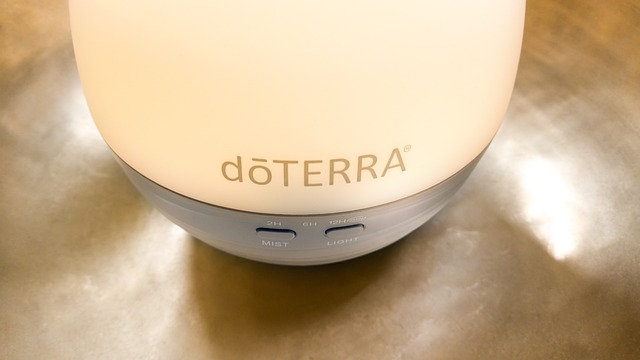In the digital age, "screen time" management is crucial for maintaining focus and mental well-being. Excessive device usage can lead to attention issues, stress, and sleep disturbances. Effective strategies include setting boundaries, scheduling device-free periods, using apps to limit usage, and engaging in non-screen activities like exercise or hobbies. Structured digital detoxes, similar to meal planning for health, involve tech-free times and zones, clearing mental clutter, and fostering environments for deep thinking and quality time. Balancing technology use through specific engagement times, tech-free spaces, and mindfulness practices enhances focus and relaxation, contributing to a healthier lifestyle in a digitally saturated world.
In today’s digital age, managing screen time is crucial for maintaining focus and relaxation. This article explores strategies to navigate the bustling world of technology, helping you strike a balance. We delve into the impact of screen time on your well-being and offer practical tips for setting boundaries. Learn how incorporating digital detox into your routine can enhance focus and promote tranquility. Discover mindful technology use techniques for a healthier, more peaceful mind.
- Understanding Screen Time and Its Impact
- Setting Boundaries: Strategies for Effective Screen Time Management
- Incorporating Digital Detox into Your Routine
- Enhancing Focus and Relaxation through Mindful Technology Use
Understanding Screen Time and Its Impact

Screen time, a term that has become increasingly relevant in our digital age, refers to the duration we spend engaging with various electronic devices, primarily smartphones, tablets, and computers. While these devices offer numerous benefits, excessive screen time can significantly impact our focus and mental well-being. Research suggests that prolonged exposure to screens can lead to decreased attention spans, increased stress levels, and even disrupted sleep patterns.
Managing screen time effectively is a vital step towards achieving better focus and relaxation. It involves recognizing the signs of excessive usage, setting boundaries, and adopting healthy habits. Just as we plan our meals for a balanced diet, managing screen time requires a mindful approach to ensure we prioritize mental health alongside our digital interactions. This might include scheduling specific device-free periods, utilizing apps that track and limit usage, or engaging in activities that promote relaxation and mindfulness away from screens.
Setting Boundaries: Strategies for Effective Screen Time Management

Setting clear boundaries is a powerful strategy for managing screen time and achieving a healthier balance in your life. It involves recognizing and understanding your triggers for excessive screen usage, whether it’s work-related deadlines, social media notifications, or entertainment apps. By identifying these triggers, you can proactively set limits and establish specific times to engage with digital devices.
One effective approach is to designate certain periods as ‘tech-free’ zones in your daily routine. For instance, make your dinner table a screen-free zone, encouraging family or roommates to do the same. Similarly, allocate specific times for exercise or hobbies that don’t involve screens, ensuring these activities are prioritized. Using features like ‘Do Not Disturb’ modes and app limits on your devices can also help you stick to these boundaries. Remember, effective screen time management is about creating a healthier lifestyle where digital tools serve your needs rather than the other way around.
Incorporating Digital Detox into Your Routine

Incorporating regular digital detox sessions into your routine can significantly enhance focus and promote relaxation, a crucial aspect of overall well-being. Stepping away from screens allows your mind to rest and reset, especially in today’s digitally saturated world where we’re constantly bombarded with notifications and updates. By setting aside dedicated time for a digital detox, you create space for other activities that nourish your mind and body—much like preparing a healthy meal involves selecting nutritious ingredients.
Just as meal planning aids in achieving nutritional goals, structuring your digital detox can ensure maximum benefits. This might involve turning off all devices during specific hours, such as during meals or before bedtime, or even designating a tech-free zone in your home. By eliminating digital distractions, you clear the mental clutter and create an environment conducive to deep thinking, quality time with loved ones, and engaging in relaxing hobbies that weren’t possible while engrossed in screens.
Enhancing Focus and Relaxation through Mindful Technology Use

In today’s digital age, technology is a double-edged sword for focus and relaxation. While it offers immense connectivity and information access, excessive screen time can lead to mental fatigue and decreased productivity. Enhancing focus and cultivating relaxation through mindful technology use involves striking a balance. This means setting designated times for tech engagement, creating tech-free zones at home and during mealtimes, and prioritizing tasks without digital distractions.
Adopting healthy meal planning practices can also contribute to this mindfulness. Breaking away from screens during meals allows for improved digestion, better social interaction, and the chance to appreciate the present moment. This simple shift in routine can help reset your mental state, making it easier to focus on tasks and find tranquility amidst a tech-saturated world.
Managing screen time effectively is a key component of achieving both focus and relaxation in today’s digital age. By understanding the impact of screen usage, setting clear boundaries, incorporating regular digital detox periods, and adopting mindful technology practices, we can create a healthier balance. Just as we plan healthy meals to nourish our bodies, mindful management of screen time nourishes our minds, enabling us to thrive in an increasingly connected world.
